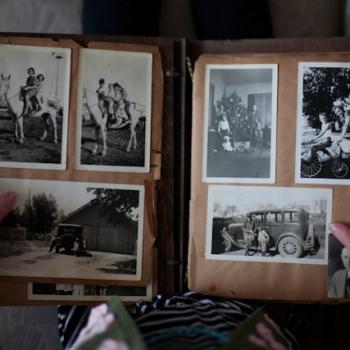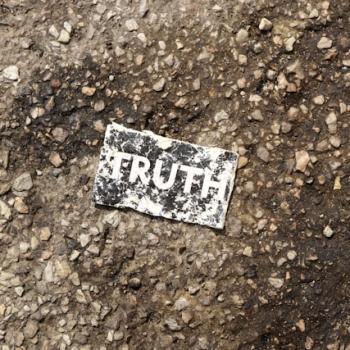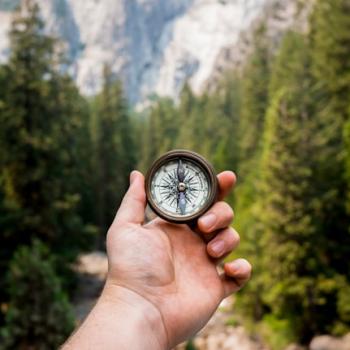
My favorite trope in Science Fiction is the cyborg. While many other people are drawn to concepts like AI, aliens, or time travel. I enjoy all of those tropes, in part, but something about cyborgs hits a deep cord in me. The themes of personhood and identity speak strongly to me.
In a recent article on Foe, we took a look at some of the wrong places where people draw their identity, and what the effects are on them and the people around them. But I think the topic is far from exhausted. Where better to look for an exploration of identity than in a movie packed full of cyborgs?
Another’s Name:
Alita was adapted from a Japanese Cyberpunk Manga and translated into film in 2019 to mixed reviews. It very much holds to its Asian storytelling roots, though I think the makers did a good job making it more palatable for a Western audience.
The movie opens with a doctor, Ido, rummaging through the garbage dumped from Zollum, the last floating city. Ido lives in the slums and works exclusively with cyborgs, providing life-saving implants at low or no cost.
Ido discovers the disembodied, but still living, head and chest of a damaged cyborg in the garbage. He chooses to rescue the still-living girl. He returns the girl to his home, and replaces her body with the cybernetic body he had created for his disabled daughter. When she awakes, and he finds her to be missing her memory to the point that is like a child, he even gives her his daughter’s name. Alita.
The world Ido inhabits is a dangerous one, and he is intent on protecting his new daughter, despite his ex-wife’s accusations. Alita, on the other hand, is progressing quickly and begins behaving, honestly, like a rebellious teenager.
Alita falls in love with a criminal named Hugo, who works for the oppressive force controlling their city. She quickly finds great joy in the incredibly dangerous popular sport, moterball. Later she discovers that Ido is acting in the role of a hunter-killer, the honor-code-driven mercenaries who kill and capture the worst criminals on the streets. Alita wants nothing more than to join.
Alita and Ido soon begin to clash. Ido is still desperate to protect her, while Alita begins to suspect that she was made for something more. Her knowledge of advanced and extinct fighting styles, her need for action, and her passion for justice push her into direct conflict with the leading authorities.
Another’s War
Alita gets flashbacks about who, and what she is. She is, it is explained, a “berserker”. While the movie itself doesn’t appear to give much information about this class of cyborgs, they seem to be elite female soldiers sent out by the enemy. These were the soldiers who destroyed all the floating cities except for the last one. There an immortal enemy awaits.
As Alita regains her memory, she also regains her motivations. She takes the fight to the enemy, proudly declaring “I will not stand by in the face of evil.” When her adopted body is shredded in a battle, Alita is returned to the berserker mechanical body she was made for.
Alita’s love for Hugo motivates her to join professional moterball in an attempt to help him reach Zollum. But Nova, her enemy, has hired the other players, and multiple hunter-killers, to end Alita’s life.
One hunter-killer, an arrogant cyborg named Zapan, sets his gaze on Hugo. He frames Hugo for murder in order to have the freedom to kill him and lure in Alite. Alita fights him off and “Claims the kill” after Hugo is mortally injured. However, she has managed to keep his brain alive by connecting his severed head to her body.
Hugo, now a cyborg, attempts to climb to Zollum to escape a life on the run in the slums. But, despite Alita’s best attempts, he is killed during his efforts.
Alita returns to moterball with the goal of reaching Zollum and battling Nova.

Who We Are And Who We Are Made to Be.
In popular psychology, people often discuss the difference between nature and nurture. Nature is the idea that we are born with a particular set of behavioral patterns and we will display those behaviors no matter what environment we are raised in.
Nurture is the idea that human beings are a “blank slate” and negative behavior patterns are only ever the result of negative environmental factors.
While there is evidence for both theories, I feel like science backs up Biblical theology on the matter. Every human being is a created soul, a person with a complex set of factors that build who they are before they were born.
DNA, sin nature, family of origin, world view, trauma, and many other factors can form those people in one direction or another. At the very base of it all, though, we have the concept of our identity. Identity encompasses both nature and nurture but includes something more. Something deeper.
Scripture tells us there are two possible true identities for human beings. We are either alive in Christ, or Dead in our trespasses and sin.
In Alita, Ido mimics the prophetic allegory in Ezekial 16. God describes himself, in Ezekial, as a man who comes on an abandoned infant and chooses to rescue the child. Now, the allegory does mix some metaphors in a way we would think of as being a bit “Icky”, but the concept I want to focus on is the idea of rescue.
Ido pulls Alita from the garbage heap, imitating God lifting abandoned Israel from her blood and filth. Ido then gives Alita everything. He gives her a home, love, his own daughter’s body and name, and safety and protection. Even when she rebels against him by falling in love with a criminal who places her in danger, he sees the beauty in her love and draws her toward her potential rather than leaving her to the consequences of her choices.
When Alita discovers who she was made to be, and how she can fulfill that role, Ido provides a path for that as well. Even though he disagrees with many of her choices, he provides for her needs and supports her path.
Becoming more Christlike, Means Becoming more Ourselves.
Ido is an imperfect example, but a good image of who God is. Unlike God, Ido didn’t create Alita. God, however, has created us. He knows not just who He wants us to be, but who He created us to be.
When God lifts us up, rescues us from the grave, and adopts us as His own, He is replacing the negative impacts of our environment with a much stronger example. While it will still always take time to recover and work through trauma, bad parenting, and sin-nature in general, God’s rescue makes it possible to change.
In Alita, Ido had to choose between who he wanted Alita to be and who she was created to be. In the end, he chose to support her in who she was created to be because he loved her. God does not have this conflicting decision to make. God, therefore, can provide the perfect resolution to the question of nature versus nurture.
By choosing to “Crucify” ourselves, we are laying our identity of death in the grave. When we are made alive together with Christ, we rise into the most perfect form of identity. We are, in essence, most like ourselves when we are most like Christ.
The more we depend on God to reveal our identity to us, the more we can live and move into greater satisfaction and joy.
Join me on Friday, Jan 3, to discover how storytelling can drive our future changes.
If you would like to see how I handle these types of themes in my own stories you can find my fiction here.












